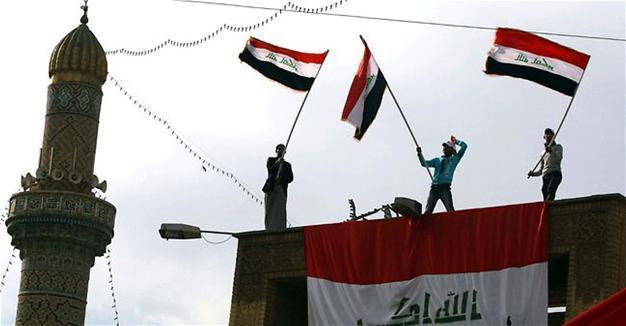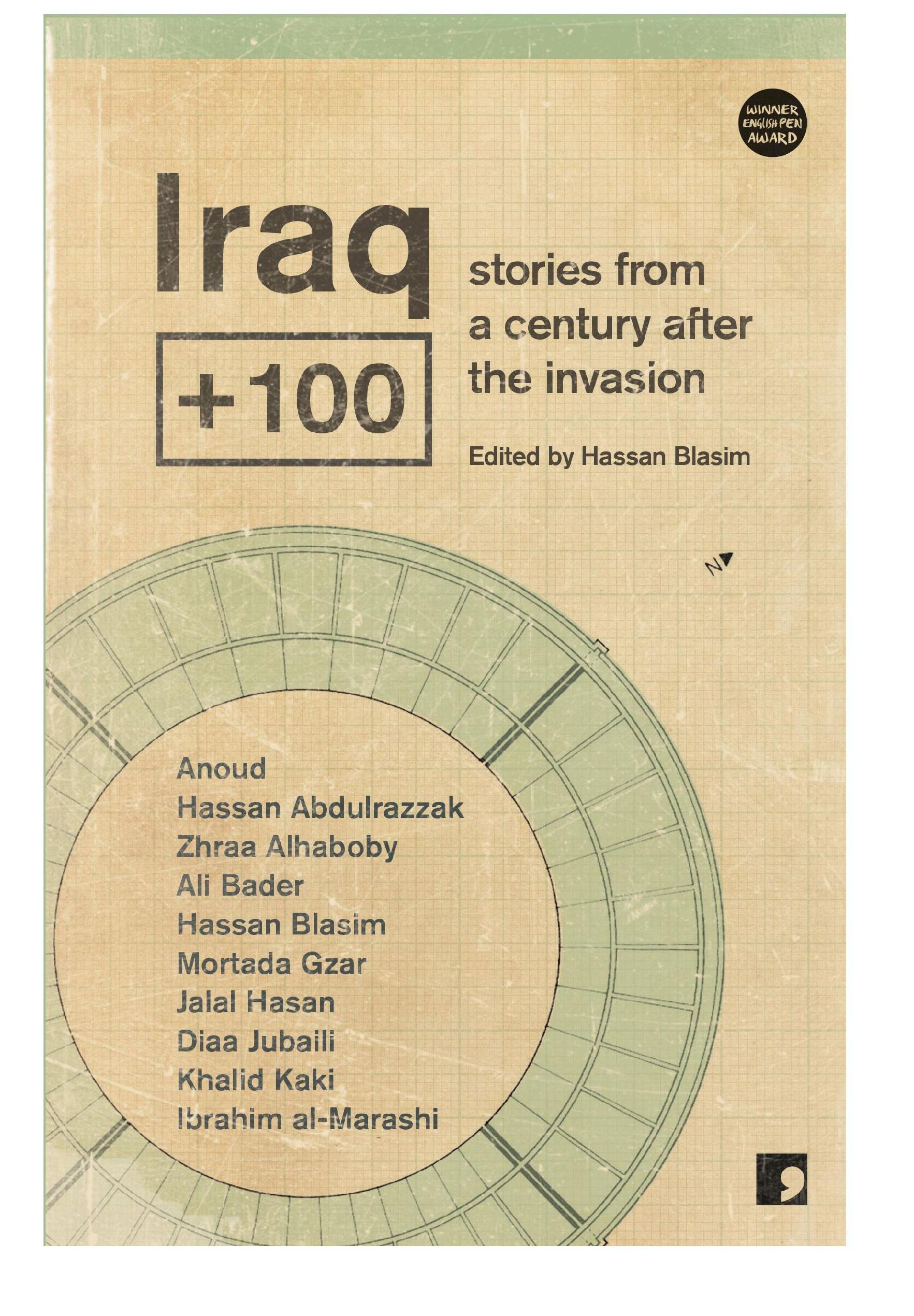Iraq +100
William Armstrong - william.armstrong@hdn.com.tr

Iraqis celebrate the departure of US troops in Baghdad, after the prime minister declared a national 'Iraq Day' holiday. Picture: AFP
‘Iraq +100: Stories from a Century after the Invasion’ edited by Hassan Blasim (Comma Press, 192 pages, £10)
“Iraq +100” poses a question to 10 Iraqi writers: What might your country look like in the year 2103. The resulting book is a bracing and unsettling anthology of visions set 100 years on from the catastrophic Anglo-American invasion of Iraq and 87 years on from today.

Edited by award-winning writer Hassan Blasim, many of the stories share his taste for the surreal and macabre. Blasim writes in the foreword that it was difficult to persuade many contributors to write stories of the future when they are mired in “the cruelty, horror and shock of the present.” But writing about the future gave them “space to breathe outside the narrow confines of today’s reality.” Blasim recently told the BBC that the collection offered “a chance to laugh in the gutter.” It is true that all 10 stories are testaments to the imaginative spirit.
The best science fiction tells us more about contemporary hopes and fears than the future it is trying to predict. It uses the blank canvas of the future to explore the context of today in new and abstract ways. Some of the stories in “Iraq +100” are more successful than others but all are stimulating, blending science fiction with fantasy, fairy tale and magic realism.
All of the stories in “Iraq +100” imagine a strikingly different political and social order. We meet time-travelling angels, technophobic dictators, talking statues, macabre museum-worlds, and hovering tiger-droids. The future described is mostly grim, but all stories are shot through with black humor. In one of the wittiest contributions, “Kahramana” by the author Anoud, the landscape is transformed but a familiarly dictatorial religious political structure remains in place. “The Worker” by Basra-based Diaa Jubaili imagines a future after the oil and gas have run out, and human corpses “for medical students to dissect and learn from” are the country’s most profitable export.
Perhaps the most memorable story is Ali Bader’s “The Corporal,” a Gogolian fantasy set in the historic city of Kut. Bader describes an Iraq that has become a paradise of reason and calm, the “vanguard of the civilized world” where people have no need for religion. “It’s been years since this city has seen a single dispute,” says one local. “There are no more Sunnis, Shi’as, Christians, or Jews. No more conflicts or civil wars, and no one judges anyone else over his religion.” The West, meanwhile, has become an oasis of terrorism, religious intolerance and hatred. The U.S. is an extremist state, gripped by fundamentalist religion and part of a reviled “axis of evil.”
In his foreword, Blasim says he is close to certain that “Iraq +100” is the first collection of Iraqi science fiction short stories in the corpus of modern Iraqi literature. It is certainly a success. One hopes there are more to follow.
*Follow the Turkey Book Talk podcast via iTunes here, Stitcher here, Podbean here, or Facebook here

 Edited by award-winning writer Hassan Blasim, many of the stories share his taste for the surreal and macabre. Blasim writes in the foreword that it was difficult to persuade many contributors to write stories of the future when they are mired in “the cruelty, horror and shock of the present.” But writing about the future gave them “space to breathe outside the narrow confines of today’s reality.” Blasim recently told the BBC that the collection offered “a chance to laugh in the gutter.” It is true that all 10 stories are testaments to the imaginative spirit.
Edited by award-winning writer Hassan Blasim, many of the stories share his taste for the surreal and macabre. Blasim writes in the foreword that it was difficult to persuade many contributors to write stories of the future when they are mired in “the cruelty, horror and shock of the present.” But writing about the future gave them “space to breathe outside the narrow confines of today’s reality.” Blasim recently told the BBC that the collection offered “a chance to laugh in the gutter.” It is true that all 10 stories are testaments to the imaginative spirit.